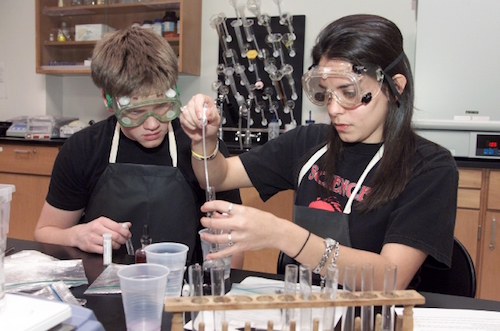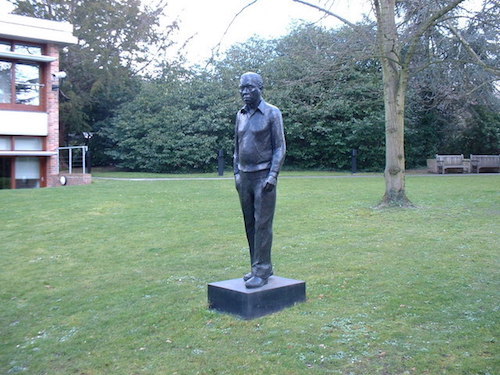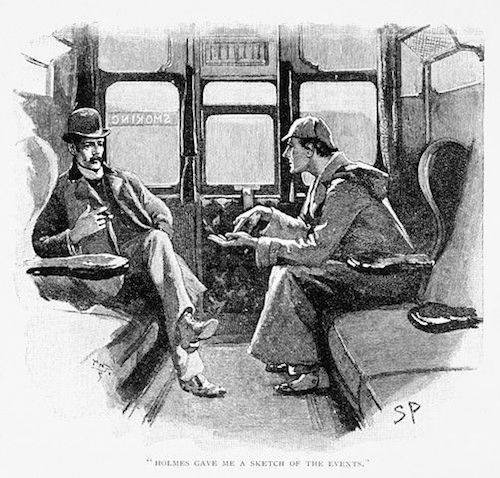Discovery Institute's Blog, page 20
December 1, 2016
For Your Commute: Stephen Meyer's Darwin's Doubt and Signature in the Cell on Audiobook!

Here in Seattle, traffic can be more than a little tricky and commutes by road or rail seem to get longer all the time. That's why we are especially excited to announce that Stephen Meyer's New York Times bestseller Darwin's Doubt as well as Signature in the Cell will be released as audiobooks in December and are available for pre-order now!
Make your travel time enjoyable and productive next year with Meyer's books, read by Derek Shetterly. With Christmas around the bend, it's a great gift...
Best of Behe: Waiting Longer for Two Mutations

Editor's note : In celebration of the 20th anniversary of biochemist Michael Behe's pathbreaking book Darwin's Black Box and the release of the new documentary Revolutionary: Michael Behe and the Mystery of Molecular Machines, we are highlighting some of Behe's "greatest hits." The following was published by Discovery Institute on March 20, 2009. Remember to get your copy of Revolutionary now! See the trailer here.
An interesting paper appeared in a 2008 issue of the journal Genetics, "Waitin...
Fact-Check: The Atlantic Misrepresents Kansas Science Standards and Won't Correct the Record

More than a decade later, news media still misrepresent the 2005 Kansas science standards. An article in the November 2016 issue of The Atlantic, "Big in Europe: The Church of the Flying Spaghetti Monster,"contains a significant factual error. Reporter and senior editor Kathy Gilsinan states:
In 2005, the Kansas Board of Education voted to let public schools teach the creationist theory of intelligent design alongside evolution, arguing, among other things, that you couldn't prove a superna...
The Evolutionary Argument from Ignorance

Yesterday I looked at the enormous problems that the DNA, or genetic, code pose for evolutionary theory. Here, previously noted at Evolution News, is a paper that seems to have come to the same conclusion. The authors argue that the underlying patterns of the genetic code are not likely to be due to "chance coupled with presumable evolutionary pathways" (P-value < 10^-13), and conclude that they are "essentially irreducible to any natural origin."
A common response from evolutionists, when presented with evidence such as this, is that we still don't understand biology very we...
< 10^-13), and conclude that they are "essentially irreducible to any natural origin."An Understood World

Reading an article by astrophysicist Adam Frank at NPR's 13.7 blog ("Can Science Save The World?"), I found myself resonating with his story of hope in science:
More than anything before it in human history, science was an approach to the world's uncertainty that demanded results. Answers needed to be worked out in public and they needed to be demonstrably true over and over again.
In that new approach came a new kind of success. Ancient horrors like disease and hunger were, for the first ti...
November 30, 2016
Vegans Shriek at Beef Tallow in UK Five Pound Note

Vegans in the UK are upset that they will have to touch money that contains a bit of beef tallow. From a column in The Guardian:
Few industries are as secretive as the one that murders 22m animals each day in the UK alone, and the driving force for that shiftiness is a lust for profit. So the way the Bank of England tried to sneak out money containing animal products seems a fitting metaphor for the entire filthy racket.
Oh, the horror.
Animals can't be "murdered," only people. Comparing the...
Fred Hoyle: Intelligent Design Advocate

I would like to correct a common misconception about the astronomer Sir Fred Hoyle. It is widely known that Hoyle was a proponent of panspermia, the notion of intergalactic "seeding" of planet Earth advocated by a number of atheists such as Francis Crick and Professor Brig Klyce. But it is important to recognize that panspermia need not be tantamount to an end-run around theism to a negation of God.
Hoyle is often regarded as a panspermia atheist, and his book The Intelligent Universe (1983...
The Rest of the Story -- Eugenics, Racism, Darwinism

According to its most ardent proponents, a widespread embrace of evolutionary theory is a big win-win not only for science but for culture and ethics. Our recent report "Darwin's Corrosive Idea" handily dispels that rosy picture as it pertains to the present day. As for history, Jason Jones and John Zmirak writing at The Stream helpfully remind readers of the link between eugenics, racism, and Darwinism.
Their specific topic is Margaret Sanger and the documentary Maafa 21: Black Genocide. He...
My Dear Watson: Four Observations on the DNA Code and Evolution

The DNA code is used in cells to translate a sequence of nucleotides into a sequence of amino acids, which then make up a protein. In the past fifty years we have learned four important things about the code:
1. The DNA code is universal. There are minor variations scattered about, but the same canonical code is found across the species.
2. The DNA code is special. The DNA is not just some random, off the shelf, code. It has unique properties that, for example, make the translation process m...
Hybrids Weave Darwin's Tree into a Web
We may be on the third wave of a scientific revolution in biology. It may be so big, the story "no doubt has Ernst Mayr hyperventilating in his grave," thinks evolutionary biologist Nora Besansky of the University of Notre Dame. Mayr influenced a generation of evolutionists. Is one of his core Darwinian concepts unraveling? In Science Magazine, Elizabeth Pennisi sets the stage:
Most of those who studied animals had instead bought into the argument by the famous mid-20th century evolutionary...
Discovery Institute's Blog
- Discovery Institute's profile
- 15 followers




